Afghanistan a $3 trillion shambles
A control freak foreign secretary on holiday and a complacent president caught napping. The fall of Kabul shames the West.
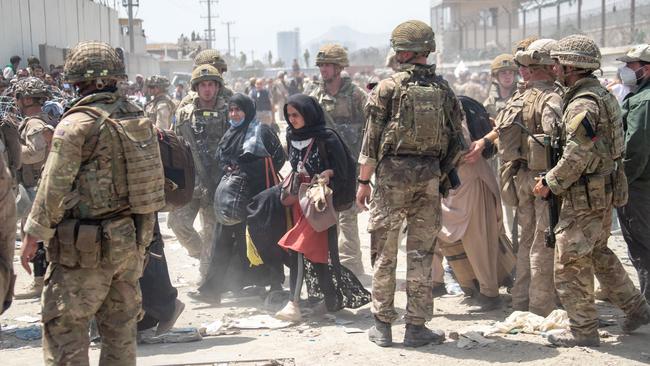
As Afghanistan collapsed - and with it Britain and America’s credibility — two sets of confrontations crystallised the recriminations that have soured Anglo-American relations and cleaved the UK government in two.
Military sources told MPs that there have been “heated words in front of their troops” between British and American commanders at Kabul airport, where thousands are trying to get on a flight to freedom. In one account there was a “stand-up” row between officers from 2 Para and the US 82nd Airborne. In another an “irate” British officer “shouted down” a US superior. “The general’s mother’s lineage was called into question,” a source said.
The second incident, emblematic of the government’s internal problems, came late on Saturday last week when the British ambassador, Sir Laurie Bristow, was planning to leave Afghanistan with his staff.
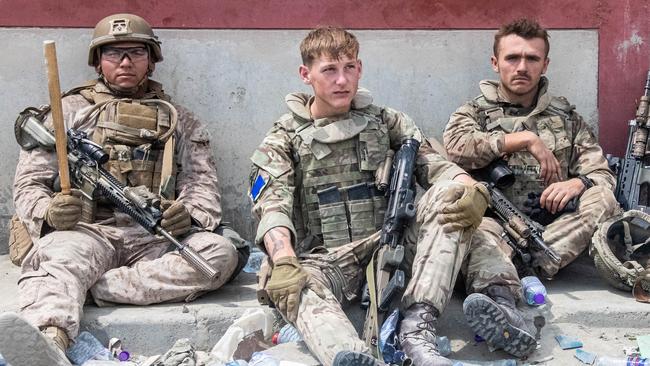
Sources say a military officer told the ambassador it was inappropriate to leave soldiers to do the work of diplomats, processing thousands of applications from British nationals, and Afghans who had risked their lives to work with British forces. “I don’t think so, do you?” the military man is understood to have said, staring down Bristow. “There was an eyeball-to-eyeball moment,” a Minister said. “He [Bristow] had a change of heart.” As with everything in Afghanistan, the truth is more complicated. The decision for embassy staff to leave was originally made in a meeting that included the deputy national security adviser, David Quarrey, that morning.
We are working flat out to bring British nationals and our Afghan colleagues to safety. We’ve already helped hundreds of people to leave on military flights. pic.twitter.com/Cv3fgsE8IO
— Laurie Bristow (@laurie_bristow) August 18, 2021
By the evening the calculation had changed. A senior Foreign Office mandarin phoned Bristow and ordered him to stay. “It was pretty late,” a Whitehall source said. “There was a flight preparing to take off.”
But the stand-off on the ground - and the briefing against an ambassador hailed as a hero on social media for staying behind to help those trying to get out — reveals the passion and anger that have divided Whitehall departments.
The British Ambassador to Afghan Laurie Bristow has remained in Kabul and is personally processing visas for Afghani staff at the airport. A true hero.
— Stephen Canning (@EssexCanning) August 15, 2021
This weekend the position of the foreign secretary, Dominic Raab, remains in question after revelations that he refused to call the Afghan foreign Minister as the crisis was unfolding and then remained on holiday as Kabul fell; ministers are openly questioning both the sanity of Joe Biden, the US president, and the durability of the Anglo-American relationship; and military and civilian leaders are wondering how their intelligence agencies failed to predict the chaos.
Laurie Bristow and others have shown real leadership in Afghanistan.
— The Labour Party (@UKLabour) August 21, 2021
Dominic Raab wouldn’t even pick up the phone.
It’s time for Boris Johnson to sack him.
Pass it on. pic.twitter.com/NwecYk1gaf
The question senior figures are asking is: How did the 2001 intervention, which was designed to oust the Taliban and deny terrorists a haven, and which has cost $US2.2 trillion ($3.07 trillion) in military and reconstruction costs over 20 years, collapse into a situation where the world’s leading power is fleeing, having handed the country on a plate to the Taliban and whatever other extremists they may choose to shelter?
As the situation in Afghanistan deteriorated last week, Biden used a press conference on Monday to say, “The buck stops with me” and rejected any suggestion that the withdrawal could have been handled better. “Getting out would be messy no matter when it occurred,” he insisted.
In London ministers and their advisers watched with incredulity. One Minister said the president “looked gaga”. An aide described the press conference as “completely mad” and the president as “doolally”. Such thoughts are normally never whispered in Whitehall, let alone briefed.
Biden did not expect it to play out like this. Shortly after lunch on Friday, August 13, the day after the Taliban had taken control of Kandahar, Afghanistan’s second city, US embassy staff in Kabul began destroying sensitive documents. Biden, meanwhile, departed for his holiday.
Behind the scenes national security officials were beginning to panic. Predictions about how long the Afghan army would hold out had been rapidly downgraded. One official told the website Politico: “We thought we had months ahead of us to draw down the embassy and do processing and relocation.”
By the time he left for Camp David, Biden had authorised sending 3,000 extra troops to secure the airport in Kabul. By last Sunday the city had fallen and President Ashraf Ghani had fled. Within 72 hours of his departure for his holiday, Biden was back in the White House and facing a foreign policy crisis that could define his presidency.
Senior government officials in London have said that, in a meeting of the Cobra emergency committee last Sunday, Boris Johnson was “extremely frustrated” by the turn of events.
This frustration grew more acute when the prime minister requested a conversation with Biden on Monday morning and the president did not return his call until 10pm on Tuesday. “The prime minister stressed the importance of not losing the gains made in Afghanistan over the last 20 years,” No 10 said. By then it was too late. Many of the gains had been lost.
“How is it possible that you don’t speak to your allies while this is happening?” said a former US official. “I have never seen anything like this.”
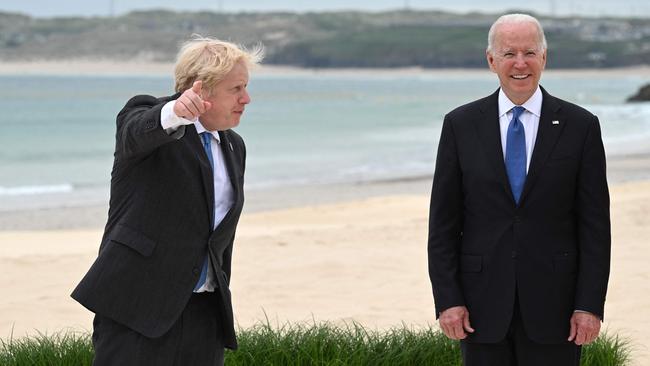
The frustration at the top of the British government with the White House is arguably unlike anything that has been seen since the Falklands War in 1982. Events in Kabul have exposed the sobering reality that Britain’s recent strategic review of foreign and security policy was predicated on a White House that wanted to work with its allies.
A furious Minister said: “America has just signalled to the world that they are not that keen on playing a global role. The implications of that are absolutely huge. There is a massive constituency in America that is isolationist.
“We need to get the integrated review out and re-read it with a yellow pen. We are going to have to do a hard-nosed revisit on all our assumptions and policies, be it China or the Middle East. This is the closest I have come to feeling depressed because of work. Brexit was bad but this is much worse. The castle we thought was built on rocks is built on sand.”
Credible sources have claimed that Johnson has been heard in Downing Street referring to Biden as “Sleepy Joe”, the nickname he was given by Donald Trump. No 10 officials said Johnson had said no such thing in the past week, had voiced no criticism of Biden and that their call had been “cordial”.
However, according to two sources, while most people in the Downing Street apparatus wanted Biden to win the presidential election, Johnson was privately agnostic. He told one close aide before the election in November that his “lizard brain”, where his darkest thoughts reside, would have been content to see Trump win.
Another insider this weekend suggested: “He says, only half-jokingly, ‘We would be better off with Trump.’ He was very much pro-Trump.”
The despair at Biden’s pullout is shared in Washington, where military veterans and old Afghanistan policy hands have been devoting long days to helping former colleagues and friends try to find their way out of Taliban-occupied Kabul to safety.
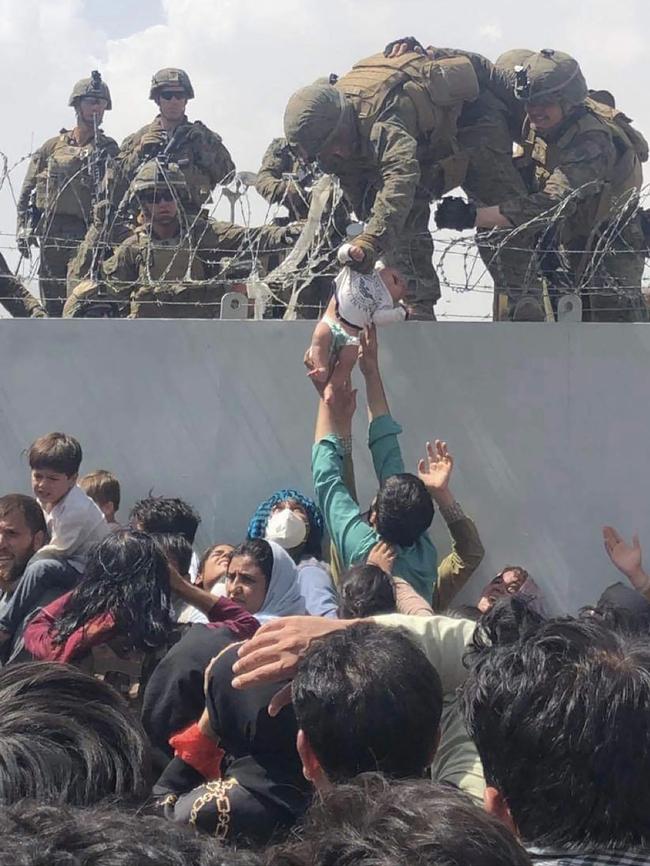
Another congressional staffer and military veteran expressed fury with his government’s approach. “The British have conducted themselves honourably,” they said pointedly.
What went wrong? The starting gun for US withdrawal was fired by Barack Obama in 2011, a month after Navy Seals killed Osama bin Laden in Pakistan. President Trump significantly reduced America’s footprint in Afghanistan, and signed a peace deal with the Taliban in February 2020. The agreement gained few concessions from the Taliban. However, Biden, who shares Trump’s conviction that America has wasted far too much blood and treasure in 20 years of war in Afghanistan, made withdrawal a priority.
In April he announced that all US troops would be out of the country by September 11, the 20th anniversary of al-Qaeda’s attack on America.
“When it comes to leaving, Trump and Biden are of completely the same view,” said John Bolton, a former national security adviser. “They’re Tweedledum and Tweedledee. On the execution of the withdrawal, you have to put the onus on Biden, though I have absolute confidence it would have been just as chaotic during the Trump administration.”
Some of Biden’s advisers attempted to talk him into reconsidering the withdrawal, including Antony Blinken, the secretary of state, but ultimately they acceded to the boss.
Biden’s firm withdrawal deadline, August 31, is seen as counter-productive. “A withdrawal done properly takes time,” said Kelly Ayotte, a former senator and co-chairwoman of the Afghanistan study group. “You can’t create an artificial deadline and then expect that you can get everyone out safely.”
At the top of the British government there was acceptance that nothing could be done to change Biden’s mind. Johnson chose not to use the G7 summit in Cornwall in mid-June to openly challenge Biden’s desire to pull out more troops for July 4, Independence Day.
According to insiders, the PM’s main concern at the summit was that Biden would not make disparaging comments about Brexit and Northern Ireland. “Boris hasn’t really done anything wrong,” said one Afghan hand, “but then he hasn’t really done anything.”
Ben Wallace, the Defence Secretary, contacted NATO allies to see if they would join a military deployment shorn of US support. There were few takers. “The Turks and the Italians offered a couple of goats,” said one military source.
All of which appears to point to an intelligence failure, although CIA officials have been quick to reject this suggestion. By July, according to The New York Times, just when Biden was breezily dismissing the idea of a Vietnam-style humiliation, intelligence reports “grew more pessimistic”. That month a State Department cable from the US embassy in Kabul warned that the government could collapse quickly. The cable was signed by 23 embassy officials and shown to Blinken.
The defence from British security sources is that while raw data supplied by MI6 and military intelligence was accurate, the conclusions drawn from it by analysts working for the Joint Intelligence Committee (JIC) were wrong. The committee issued an assessment that concluded a collapse of the Afghan government was possible. However, that outcome was low down a list of likely outcomes.
Even that, one insider said, had been seen as “panicky” by some ministers and generals. But sources on both sides of the Atlantic have said there was denial about how flimsy the Afghan army was, how dependent it was on American air support, and the slump in morale that a US withdrawal would cause. “You can have what appears to be a big powerful arch,” Bolton said, “but if you take the keystone out, it collapses.”
A British Minister said: “Intelligence on numbers and weapons was prioritised over intelligence on human nature. There wasn’t an understanding that people would not fight if someone was pointing a gun at their wives and children.”
In Whitehall there is anger about General Sir Nick Carter, the chief of the defence staff, who confidently predicted the Taliban would not take Kabul, and about Quarrey, the deputy national security adviser. “People have been moaning about the quality of intelligence information that has gone into the prime minister,” said one cabinet aide.
MI6 and the JIC are warning that the terrorist threat to the UK will be significantly heightened because al-Qaeda will be emboldened and able to stay in one place, rather than expend its energies seeking to avoid detection.
The most heated recriminations concern the responses of Raab and the Foreign Office to the crisis. A Minister said: “The idea that we didn’t see this coming is bollocks. We spent six months telling people to get out of Afghanistan.”
But when the foreign secretary, who was holidaying in a five-star resort in Crete, was asked to call the Afghans, he delegated the task to his junior Minister Lord Goldsmith. The call was not made as the situation deteriorated.
In a Cobra meeting on Friday 13th, Raab was “obsessed with the airport”, according to some who were present, and was intervening on micro issues such as plane timetables. “When it came to the bigger picture of what this might mean for foreign policy Michael [Gove, the cabinet office Minister] seemed to have thought about it more than Dominic.”
After that meeting Raab was told by a senior Downing Street official, believed to be Dan Rosenfield, the chief of staff, to come home. But when Cobra met last Sunday he was not back. In fact Raab had spoken to Johnson, who told him it was fine to return on Sunday. The foreign secretary eventually landed back in Britain at 1.40am on Monday.
A senior source said: “He was told to come back on Friday. On Sunday there was a sense of disbelief among everyone at the most senior levels in No 10 that he wasn’t there. He seems to have nobbled Boris after he was told to come back.”
Allies have said Raab was told to “begin the process of coming home” but one added: “In discussions with the prime minister it was agreed he would come back on Sunday.”
Raab is also criticised for not updating the non-combatant evacuation operation plan for Afghanistan, something James Cleverly, the Middle East Minister, had already done for Lebanon and Iraq. Lord Ahmad, who is responsible for Afghanistan, was also on holiday.
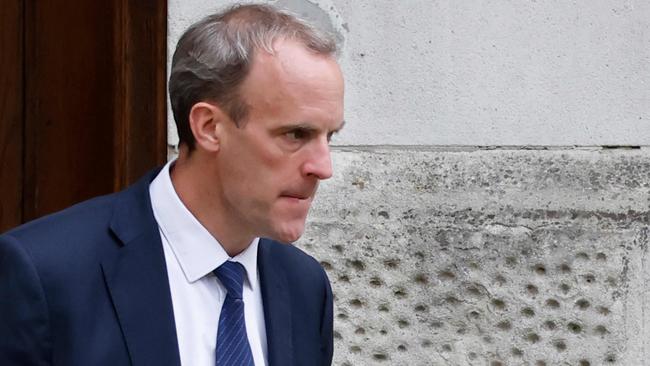
Ministers and aides have dismissed an anti-Raab briefing last week which said he had taken his eye off the ball and was lax in reading papers in his ministerial red box. In fact the problem was the opposite: Raab’s fanatical attention to detail did not make for quick decisions, though his lawyerly approach “leads to better decisions”, according to his defenders.
Raab also banned ambassadors from speaking to ministers in other departments without his permission, leaving Bristow unable to communicate with Wallace or Priti Patel, the home secretary. A Minister in another department said: “In Dom’s head everything is his responsibility. Everything has to go through him. His control-freakery is off the scale. He can’t bear to take a decision without the full information. He’s Theresa May on speed. The system he has created for him to feel in control has meant that the situation got very much worse.”
But in the end the Whitehall civil war pales beside what has been unleashed in Afghanistan and the recriminations flying across the Atlantic.
Rich Goldberg, a member of the Trump administration’s national security council, has said that there is “plenty of blame to go around” but ultimately, as Biden himself has said, the buck stops with the president.
“This is something that stems from the top,” he said. “It’s mind boggling that you would go on holiday when there’s a crisis. The president was so committed and confident in his decision, he disregarded any concerns. His view is: ‘This is not my fault, it should have happened ages ago. Let other people take the bullets.’ ”


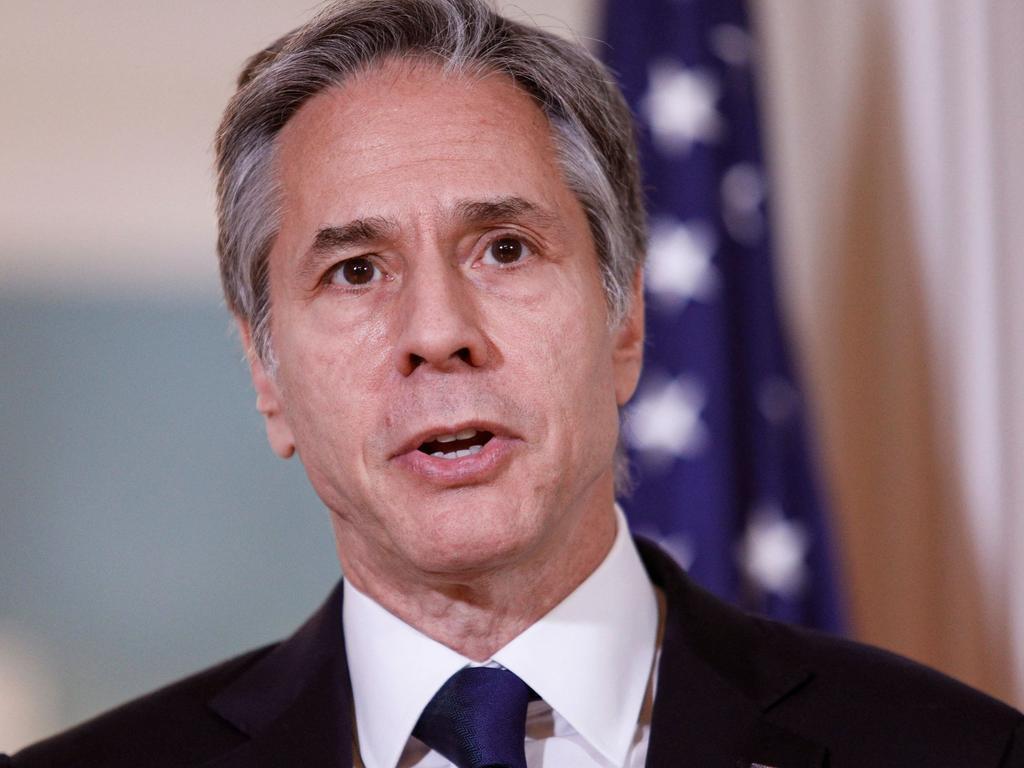

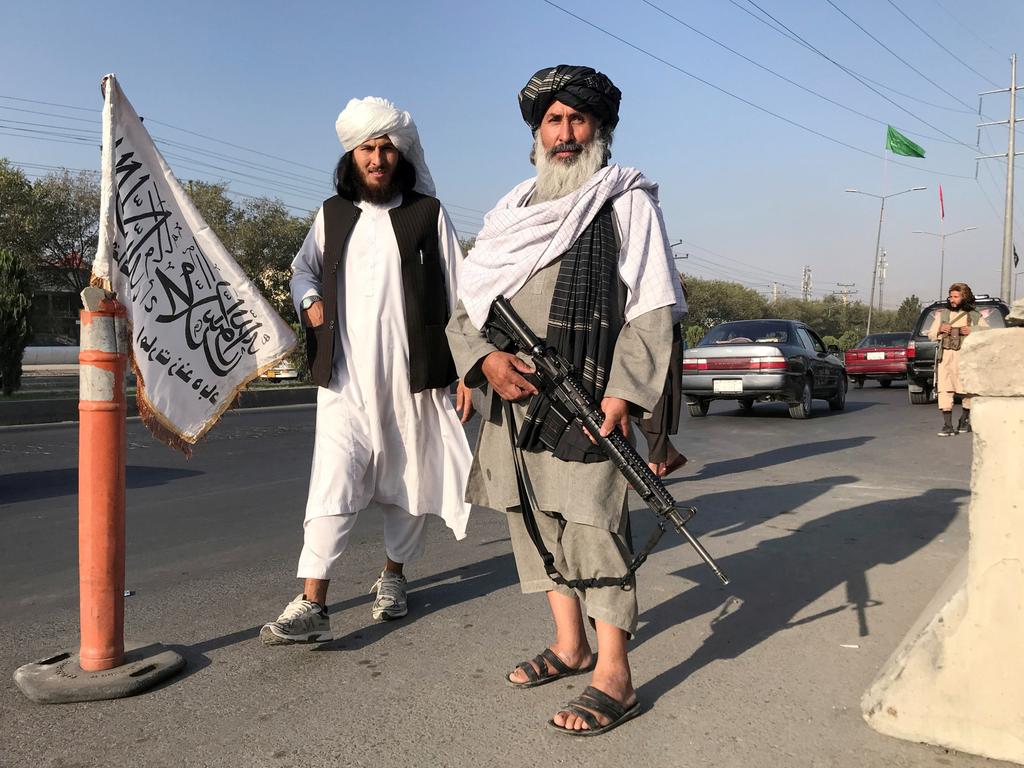


To join the conversation, please log in. Don't have an account? Register
Join the conversation, you are commenting as Logout